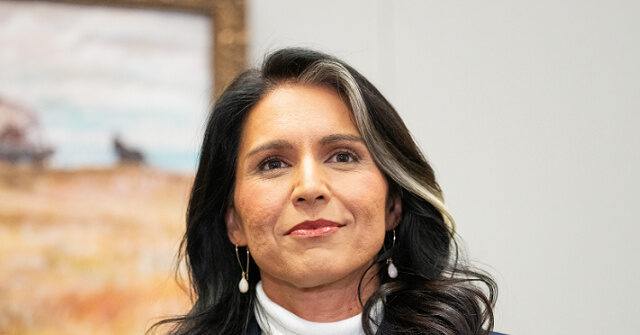In a recent op-ed for the National Review, former CIA Counterterrorism Director Bernard Hudson expressed his support for Army Lt. Col. Tulsi Gabbard’s nomination as the Director of National Intelligence (DNI) under President-elect Donald Trump. Hudson emphasized Gabbard’s unique qualifications, including her extensive experience as a public servant and her military background, asserting that she possesses the integrity and independent thought essential for rebuilding public trust in the U.S. intelligence community. He highlighted Gabbard’s commitment to patriotism and her understanding of the ramifications of military interventions, drawing from her two decades of service, including a combat deployment in Iraq.
In the op-ed, Hudson pointed out Gabbard’s political experience, citing her tenure in the Hawaii state legislature, her four terms in the U.S. House of Representatives, and her role as vice chairwoman of the Democratic National Committee. Her background in the House Armed Services Committee afforded her valuable insights into national security, further solidifying her credentials. Hudson noted that beyond her conventional military experience, Gabbard has shown a rare form of courage by engaging in difficult discussions and challenging popular narratives, notably her vocal criticism of the Obama administration’s reluctance to address “radical Islamic terrorism” during a critical time when ISIS was on the rise in Iraq and Syria.
Hudson also addressed the criticisms Gabbard has faced, particularly accusations of being a Russian agent. He underscored that such claims are misleading, especially considering her active status as a lieutenant colonel in the U.S. Army Reserves, which requires a top-secret clearance. He defended her controversial visit to Syria in 2017, during which she met with former President Bashar Assad amid the ongoing civil war. Hudson contended that Gabbard’s approach is characterized by her willingness to question the established, often flawed consensus within elite foreign policy circles rather than demonstrating weakness in confronting adversaries.
The op-ed drew a parallel between Gabbard’s critical perspective and the failures of the intelligence community, particularly in the lead-up to the Iraq War, which was driven by flawed intelligence regarding weapons of mass destruction. Hudson argued that Gabbard’s courageous questioning could have been invaluable before the war and continues to be necessary today as the intelligence community faces mounting scrutiny over past miscalculations, such as the dire consequences of ousting Libyan leader Muammar Qaddafi and the overestimation of the Afghan government’s stability post-U.S. withdrawal. He asserted that having a voice like Gabbard’s in the intelligence community could serve as a vital counterbalance to confirmation biases.
Hudson called attention to the unique role of the DNI, describing it as the single intelligence official empowered to ask tough questions about the consensus within intelligence assessments. He reiterated that this role requires someone who can challenge elite foreign policy assumptions rather than conform uncritically to them. According to Hudson, Gabbard’s willingness to think independently and rigorously evaluate intelligence outputs is not only commendable but essential for maintaining the integrity of the position she has been nominated for, particularly in restoring the public’s trust in the intelligence apparatus.
In conclusion, Hudson urged the intelligence community to embrace Gabbard’s candidacy as an opportunity to critically reassess its operations and perspectives. He argued that independent thinking is crucial in the role of the DNI and that Gabbard, with her diverse and extensive qualifications, represents a refreshing chance for true evaluation and reform within the U.S. intelligence services. Hudson’s support illustrates a push for leadership that prioritizes accountability and critical thinking, positioning Gabbard as a candidate who could potentially bridge the gap between the intelligence community and the public, thereby fostering a renewed sense of trust and credibility in national security matters.

